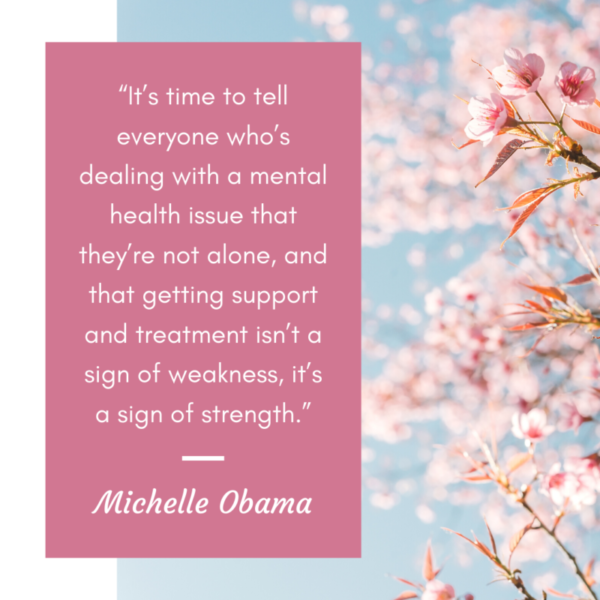
“COVID-19 is a traumatic event that we are all experiencing. We can well expect there to be a rise in mental illness nationwide,” Sandro Galea, MD, DrPH, Dean of the School of Public Health, Boston University, reported to Medscape Medical News. (1)
May is Mental Health Awareness Month. This year we recognize that the pandemic is having a significant impact on mental health. The American Psychiatric Association has found that 1 in 2 Americans are reporting high levels of anxiety during this time. Mental health professionals are anticipating a substantial increase in a wide array of mental illnesses: anxiety, depression, PTSD, and substance use disorders to name a few. Additionally, there has been a sharp rise in rates of domestic violence and child abuse due to school and employment closings. Understanding the mental health consequences that follow a pandemic, while also designing creative solutions to mitigate the effects, are both crucial to coming out the other end of all of this (1).
We know that community and a reliable routine helps to promote wellbeing and stability. This period of social distancing means disrupted routines and isolation for many. To combat this, we must find new ways to promote connectivity and establish new norms. While we are physically unable to meet with our clients, we are adapting and finding new ways to provide care. Our case managers are checking in with clients on a regular basis to ensure they have the resources and support they need. Our teachers are creating online education that is flexible with rolling admission, to ensure folks have the opportunity to go at the pace they need right now due to circumstances. At the same time, we are maintaining consistency and structure through classes that helps to foster teamwork and belonging. We are encouraging our clients in recovery to continue with online recovery support groups. We have a strong network of partners and resources to help us connect clients with the mental health services they need. Additionally, we are sharing self-care resources such as online meditations, exercise, readings, podcasts, ect to promote well-being and healthy daily routines.
During this Mental Health Awareness Month, we can each do our part to check in on friends and family to combat isolation and promote wellness. We can also work to destigmatize mental illness by having more open dialogues about mental health and understanding that shame has no place in these conversations. To quote Michelle Obama, “It’s time to tell everyone who’s dealing with a mental health issue that they’re not alone, and that getting support and treatment isn’t a sign of weakness, it’s a sign of strength.”
